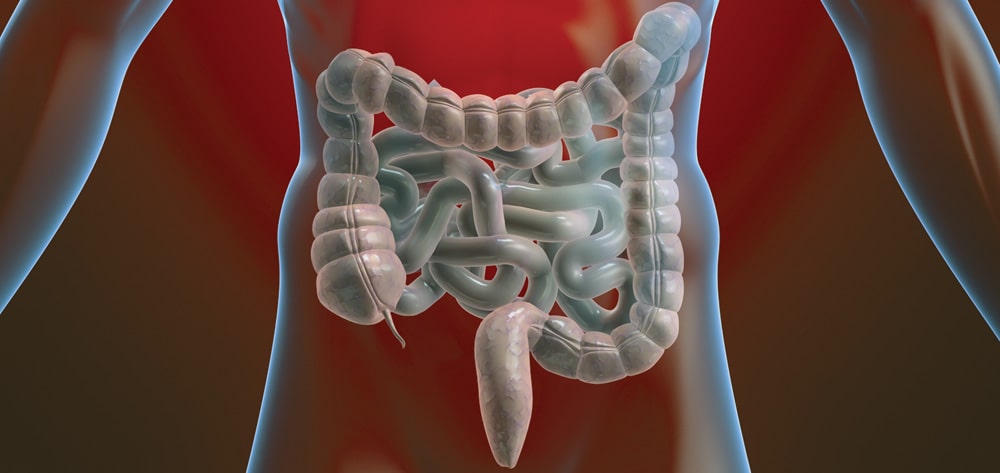WHAT IS MESENTERIC ISCHEMIA?
Mesenteric ischemia happens when narrowed or blocked arteries confine blood flow to your small intestine. Decreased blood flow could permanently damage the small intestine.
The unexpected loss of blood flow to the small intestine (acute mesenteric ischemia) from a blood clot needs immediate surgery. Mesenteric ischemia that develops over time (chronic) is treated through angioplasty or open surgery.
Untreated, chronic mesenteric ischemia could become acute or lead to serious weight loss and malnutrition.

MESENTERIC ISCHEMIA SYMPTOMS
Acute mesenteric ischemia
Signs and symptoms of the acute type of mesenteric ischemia include:
- Abrupt, serious abdominal pain
- Urgent requirement to have a bowel movement
- Fever
- Nausea and vomiting
- Renal Artery Stenosis
- Chronic mesenteric ischemia
Signs and symptoms of the chronic type of mesenteric ischemia include:
- Abdominal pain that begins about thirty minutes after eating
- Pain that gets worse over an hour
- Pain that fades away within 1 to 3 hours
WHEN SHOULD YOU SEE A DOCTOR?
If you have serious, abrupt abdominal pain that continues, look for emergency medical care. If you develop pain after eating, make an appointment with your doctor or primary care physician.
MESENTERIC ISCHEMIA CAUSES
Both acute and chronic mesenteric ischemia is caused by a decline in blood flow to the small intestine. Acute mesenteric ischemia is most frequently caused by a blood clot in the main mesenteric artery. The blood clot usually develops in the heart. The chronic form is most frequently caused by a build-up of plaque that narrows the arteries.
MESENTERIC ISCHEMIA COMPLICATIONS
If not treated immediately, acute mesenteric ischemia could lead to:
- Sepsis – This potentially life-threatening condition is caused by the body releasing chemicals into the blood flow to fight infection. In sepsis, the body overreacts to the chemicals, triggering changes that could lead to multiple organ failure.
- Irreversible bowel damage – Insufficient blood flow to the bowel could cause parts of the bowel to die.
- Death – Both of the above complications could lead to death.
People with chronic mesenteric ischemia can develop:
- Fear of eating – This happens because of the after-meal pain related to the condition.
- Unintentional weight loss – This could happen as a result of the fear of eating.
- Acute-on-chronic mesenteric ischemia – Symptoms of chronic mesenteric ischemia could progress, leading to the acute type of the condition.

MESENTERIC ISCHEMIA DIAGNOSIS
Your doctor or primary care physician may suspect that you have chronic mesenteric ischemia if you have pain after eating that causes you to limit food and lose weight. A narrowing of the major arteries to the small intestine could help confirm the diagnosis.
TESTS MAY INCLUDE:
Angiography – Your doctor or primary care physician may suggest a computed tomography (CT) scan, magnetic resonance imaging (MRI), or X-ray of your abdomen determine if the arteries to your small intestine have narrowed. Adding a contrast dye (mesenteric angiogram, computed tomography (CT) angiography, or magnetic resonance angiography) could help pinpoint the narrowing.
Doppler ultrasound – This non-invasive test uses sound waves to estimate blood flow, which could determine narrowing of the arteries.
MESENTERIC ISCHEMIA TREATMENT
If a blood clot causes an unexpected loss of blood flow to the small intestine, you may need immediate surgery to treat your mesenteric ischemia. Mesenteric ischemia that develops over time may be treated with a procedure that uses a balloon to open the narrowed region.
A mesh tube (stent) may be placed in the narrowed region. Mesenteric ischemia could also be treated via open surgery through an incision.
If you or anyone you know is suffering from mesenteric ischemia, our expert providers at Specialty Care Clinics will take care of your health and help you recover.
Call 469-545-9983 to book a telehealth appointment for an at-home check-up.
